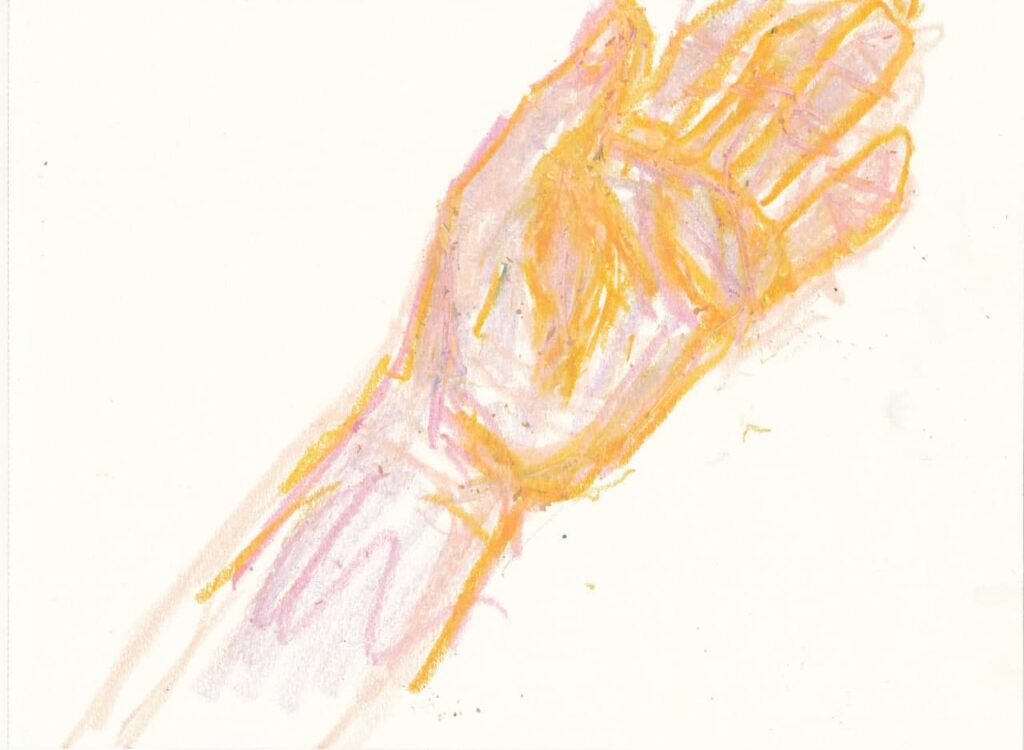Contact persons
University:
Christine dos Santos Costa
Contact person for sexual harassment
+49 711 685-66468
costa@gkm.uni-stuttgart.de
Klaus Dirnberger
Contact person in case of sexual harassment
+49 711 685-64437
klaus.dirnberger@ipoc.uni-stuttgart.de
stuvus:
Contact person in cases of sexual harassment: awareness@stuvus.uni-stuttgart.de
Department for Gender Equality, Diversity and Social Affairs: referentin-gleichstellung@stuvus.uni-stuttgart.de
You can also find contact persons and more info on Evermood.
What is sexual harassment?

Sexual harassment is always one-sided behaviour that is fundamentally different from flirting or compliments. The essential point is that the actions are unwanted. It violates the dignity of the person concerned and is perceived as unpleasant or disrespectful. It can be verbal, non-verbal or physical sexualised acts – from verbal innuendos in everyday communication to criminal offences! Although all persons can be affected equally, those affected are de facto predominantly women. Forms of sexual harassment can be, for example:
- Insinuating or ambiguous remarks about appearance and clothing,
- remarks and jokes with sexual content,
- Dissemination or display of pornographic images or texts, provided these are not for scientific purposes,
- Unwanted gifts, persistent unwanted contact, solicitation and/or unwanted invitations with clear intent,
- Proposals with the promise of advantage or the threat of disadvantage,
- Unwanted physical contact or solicitation,
- Sexually motivated stalking,
- Sexual assault, coercion or rape.
Criminal offences in Germany include stalking, sexual assault and rape.
Sexual assault at university (legal basis)
In all social contexts, but especially in the workplace, individuals may experience sexual harassment. In the minds of most students and their members, the university is seen as a place of enlightened, emancipated coexistence where incidents such as sexual assault cannot occur. However, the university is no less a place of such harassment than other areas of society. Its hierarchical structure can exploit existing relationships of dependency, thus enabling boundary violations and inappropriate advances. It is often difficult to defend against assaults because they can be disguised as unintentional acts and, when confronted, can be denied at any time or dismissed as the fantasy of the harassed or as a misunderstanding. In many cases, victims who defend themselves also have to fear negative repercussions, such as hostility, harassment or discrimination. Thus they are disadvantaged too twice. This must be prevented. Protection against sexual harassment has been legally regulated for employees in the General Equal Treatment Act (AGG) since 2006. For students, this protection is regulated in the State University Act in §4a. The law is implemented at the University of Stuttgart through a policy on dealing with cases of sexual harassment from 25.10.2022. Here, the University of Stuttgart undertakes to take action against any case of sexual harassment and to advise those affected and protect them from further harassment. This means that students are protected from harassment by university employees as well as other students.
What are the consequences for those affected?

Sexualised discrimination often leads to:
- feelings of shame
- frequent absences
- feelings of stress, insecurity, fear
- avoidance of certain situations and places
- low self-esteem in relation to own performance and self-doubt
- Reduced ability to deliver
The experience is even more serious when the unwanted advances are accompanied by innuendos or promises of benefits if sexually accommodated, or threats of negative repercussions in case of refusal. In particularly severe cases, sexual discrimination and violence leads to:
- leaving a job/dropping out of studies or the desire to do so
- impaired mental health
- impaired physical health
What are the measures and consequences for harassing persons?
Sexual harassment is a breach of duty and a misdemeanour which may result in disciplinary action. This applies to harassing students as well as to university employees. Possible measures may include, for example

- a formal official talk with the person causing the harassment,
- a verbal or written instruction,
- a written warning,
- a transfer to another workplace within or outside the university
- exclusion from a course,
- exclusion from the use of university facilities,
- ban from the premises,
- exmatriculation,
- dismissal with or without notice,
- Initiation of disciplinary proceedings and imposition of disciplinary measures (reprimands, fines, salary cuts, demotion and removal from service).
It should also be noted in particular that forcing a person to perform sexual acts, physical threats, physical violence, sexual assault and rape are criminal offences. Here, criminal charges may be brought by the rector of the university.
What can affected persons do?
Out of insecurity and fear of being considered a prude, sensitive or humourless, many victims deny or gloss over sexual harassment. The fear of being put at a disadvantage in the evaluation process also leads them to prefer not to say anything. Saying nothing and ignoring assaults is the most ineffective way of dealing with sexual harassment and is usually interpreted by the harasser as consent. This can develop into a process in which the harasser presumes to transgress more and more boundaries. Sometimes those affected then think that they themselves are to blame for the actions because they did not defend themselves. Often, however, even quick-witted or joking retorts are not very successful. Affected persons should create clear conditions with clear words, make themselves aware that they are not an isolated case and that they themselves are not to blame!
- Do not wait for the misconduct to stop by itself!
- Every individual has the right to signal and communicate their own boundaries. These must be respected and taken into account by everyone involved.
- Dare to get help! Talk to people around you about it and contact the relevant counselling centres.
- Document sexual harassment promptly and in writing, stating the place, time, circumstances and with whom you have already spoken about it.
- Do not be afraid of negative consequences! These Only this fears only gives the perpetrator so much power.

Who can you contact?
You can always contact the sexual harassment officers at the university and be assured that all your details will be treated confidentially. Initially, you can have a non-binding counselling conversation. No action will be taken without your consent! You alone decide what action you wish to take.
You may find it easier to turn to other students as a first step. In this case, you are welcome to contact the stuvus contact persons. Here you have the opportunity to get help from student to student. Of course, we will also treat your concerns confidentially. You can reach us at the following e-mail address: awareness@stuvus.uni-stuttgart.de If you would like to remain anonymous, simply write from a fake e-mail address.
How can I support affected?
There is no universal answer to this question. Depending on your relationship to the person, it can be different. However, out of insecurity and fear of being considered a prude, sensitive or humourless, many victims deny or gloss over sexual harassment. Anyone who wants to support the person affected should remember this and reflect to the person affected that they are not an isolated case and are not to blame themselves. Leuphana University offers some materials that can be helpful in a supportive conversation.
How can I raise awareness in my surroundings?
If you have made it this far by reading, you have taken the first step and started to be aware of sexual discrimination and violence yourself. This means a lot of courage and is hopefully a good introduction to the topic for you. There is plenty of information on the subject.
Leuphana University has these three pieces of advice for you:

- Identify Discriminatory and Violent Acts and Discriminatory Content and Make Them a Topic of Conversation
It is necessary to become aware of the characteristics of sexualized discrimination and violence. To gain certainty when dealing with inappropriate actions, it is necessary to be well-prepared.
- Information on the characteristics of sexualized violence can be found on the Leuphana University information platform.
- This English-language brochure contains a list of myths about sexualized discrimination and violence as well as arguments to counter these myths (from p. 65).
- You can find reaction and behavior tips for witnesses to discriminatory acts in the workplace in this brochure from the city of Vienna (from p. 11).
2. Read, Inform Yourself and Report the Findings to Others
- November 2019 a study on perceptions and attitudes of the German population regarding sexism was published. It shows among other things how and where sexism is experienced.
- The most current German study on sexual harrassment at the workplace was published October 2019 by the Federal Anti-Discrimination Agency.
- 2016 an interview study titled ‘Young men and women as those affected by sexual harrassment in training and at the workplace’ (Kammer für Arbeiter und Angestellte für Wien), was published. It includes long interview paragraphs, in which the affected (and others) talk about their experiences with violence, their reactions, their surroundings, and the ways they dealt with it.
- Here you can find studies, surveys, reports, legal expertise and guidelines compiled by the Federal Conference for Women and Gender Equality Officers at Universities (bukof-Kommission “Sexualized Discrimination and Violence“).
- You can find more information in this research report: “Berliner Monitoring: Trans- und homophobe Gewalt” (by Albrecht Lüter, Sarah Riese und Almut Sülzle).
- Here you can find a resource collection in English for “advocates and educators” (i.e. multipliers), created by the U.S. National Sexualized Violence Resource Center.
3. join a group/ network & share expertise on this
In order to raise your own awareness and to be well equipped for conversations on the topic, it is advisable to regularly exchange ideas with others. For example, there are the following groups, working groups, etc. at Stuttgart University:
- Department for Gender Equality, Diversity and Social Affairs
- Young WILPF
Do you work with a group on this topic yourself? Then please write to us and we will add your group to this list.
A big thank you to ©batski for creating the portraits.
